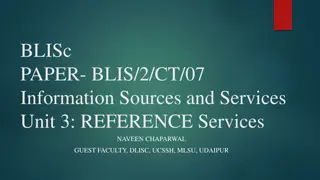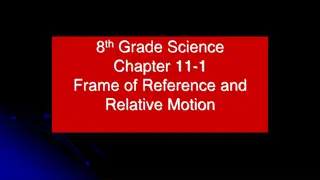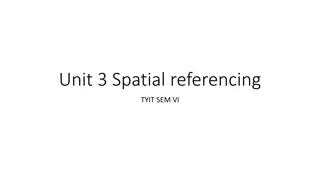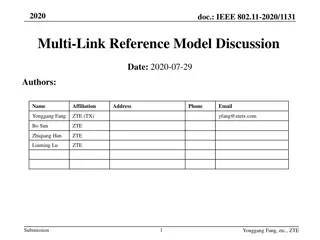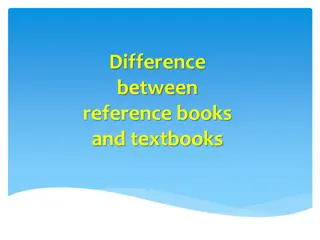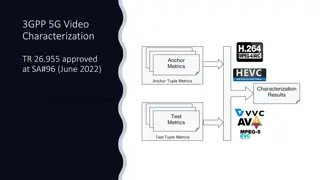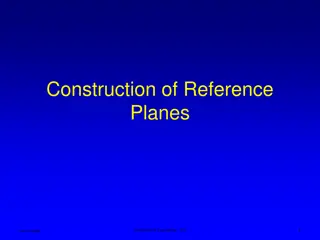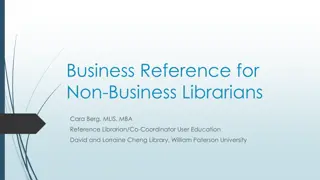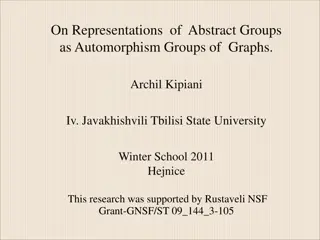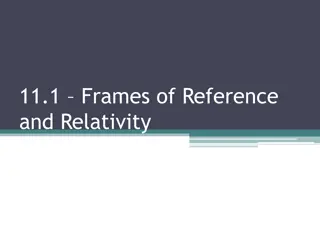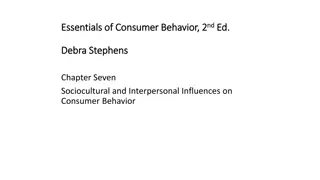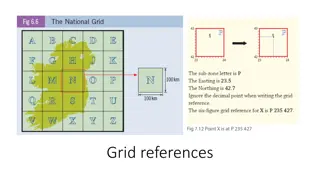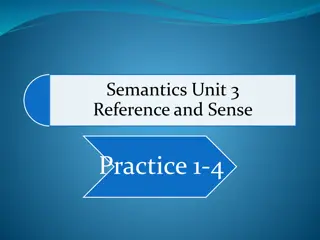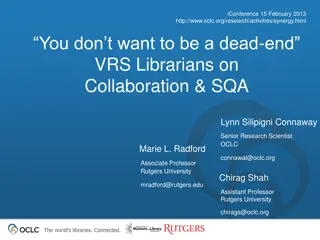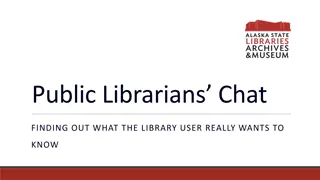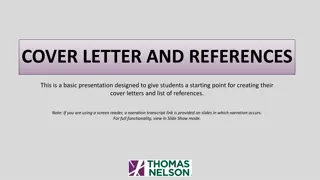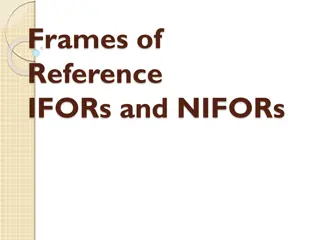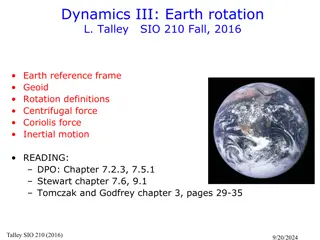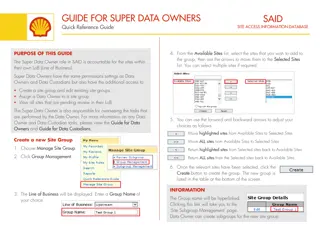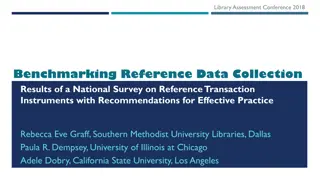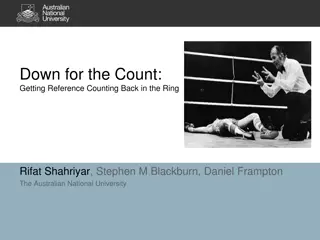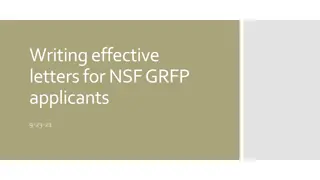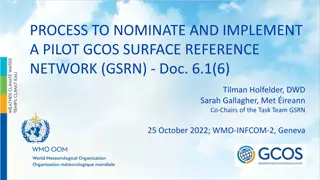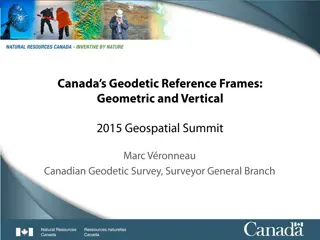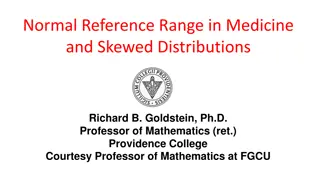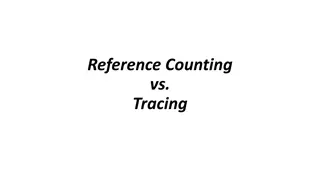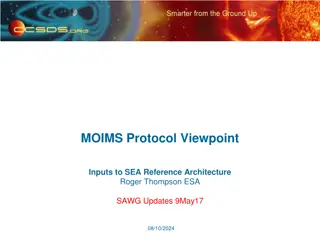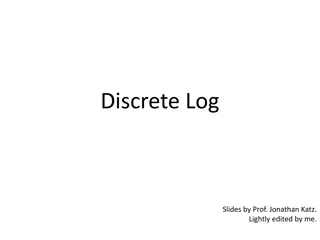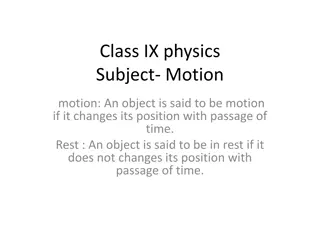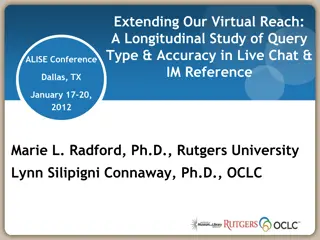Types of groups and reactions
This information discusses electron-donating groups (EDGs) and electron-withdrawing groups (EWGs), their effects on molecule reactivity, examples of each group, nucleophiles, and electrophiles. EDGs increase electron density, making nucleophiles stronger, while EWGs decrease electron density, making
0 views • 14 slides
Understanding Motion: Distance, Displacement, and Frames of Reference
This educational content delves into the concepts of motion, specifically distance, displacement, and frames of reference. It distinguishes between distance traveled and displacement, illustrating with examples of car journeys and runner movements. The importance of frames of reference in accurately
0 views • 45 slides
Importance of Reference Services in Libraries
Reference services in libraries play a crucial role in connecting users with the information they need, promoting the use of library collections. This service assists users in various queries and requests, ranging from simple fact-finding to complex research. Reference functions include responsive s
1 views • 19 slides
Understanding Motion: Frames of Reference and Relative Motion
Motion is defined as a change in position over time. To describe motion accurately, one needs to understand frames of reference and relative motion. Frames of reference are systems of objects used to determine if something is in motion, while relative motion involves movement in relation to a refere
3 views • 14 slides
Understanding Spatial Referencing Systems for Mapping
Spatial reference systems play a crucial role in defining geographic parameters and coordinate systems for mapping. They consist of components like orientation, latitude, longitude, and elevation, which help in representing spatial properties on maps. Reference surfaces such as the Geoid and ellipso
3 views • 13 slides
Understanding Interest Groups in Texas
Explore the role and influence of interest groups in Texas politics, including theories, types of groups, activities, and the impact of lobbying. Learn about incentives for joining, the free rider problem, and the various benefits interest groups offer. Discover the different types of interest group
0 views • 15 slides
IEEE 802.11-2020 Multi-Link Reference Model Discussion
This contribution discusses the reference model to support multi-link operation in IEEE 802.11be and proposes architecture reference models to support multi-link devices. It covers aspects such as baseline architecture reference models, logical entities in different layers, Multi-Link Device (MLD) f
1 views • 19 slides
Understanding Consumer Behavior in Tourism: Insights and Perspectives
Explore the complexities of consumer behavior in the tourism sector through key touchpoints, decision-making processes, cognitive approaches, and the influence of reference groups. The book delves into the dynamic journey from need to fully-formed tourism experiences, emphasizing the role of technol
0 views • 16 slides
Understanding the Varied Roles of Reference Books and Textbooks
Reference books and textbooks serve distinct purposes in education. Reference books contain specialized information like encyclopedias, dictionaries, etc., while textbooks provide structured instruction for various subjects in line with educational requirements.
0 views • 4 slides
5G Video Characterization: Reference Sequences and Metrics
Scenarios and anchor generation for various video codecs used in 5G services are detailed, along with reference sequences for different applications like Full HD streaming, 4K-TV, screen content, and more. Tools and repositories for accessing reference sequences are provided, and metrics for evaluat
0 views • 15 slides
Introduction to Construction of Reference Planes in Engineering
Explore the process of constructing reference planes in engineering, including principal planes, creating reference planes, reference features, and how to uniquely define a plane. Reference planes are essential for creating new sketches and carrying out feature operations in engineering design.
0 views • 12 slides
Business Reference Resources for Non-Business Librarians
Access a variety of business reference tools tailored for non-business librarians, including databases for articles on business topics, company and industry data sources, primary and secondary sources on taxation of exempt organizations, and demographic data resources. Connect with a reference libra
0 views • 7 slides
Representation of Abstract Groups through Graphs
Explore the representation of abstract groups as automorphism groups of graphs, touching on topics such as the existence of graphs whose automorphism groups are isomorphic to given abstract groups, the cardinality of connected graphs satisfying specific properties, and questions regarding the cardin
0 views • 16 slides
Understanding Inertial and Non-Inertial Frames of Reference
Frames of reference play a crucial role in describing and observing motion. In physics, there are two main types of frames of reference: inertial and non-inertial. An inertial frame is one that moves at a constant velocity, where Newton's first law holds true. Such frames have specific characteristi
0 views • 14 slides
Understanding Frames of Reference and Relativity
Explore the concept of frames of reference in physics, distinguishing between inertial and non-inertial frames. Learn about the laws of Newtonian mechanics, guidelines for inertial frames of reference, and delve into the intriguing realm of the Special Theory of Relativity with engaging visual aids
0 views • 35 slides
Sociocultural and Interpersonal Influences on Consumer Behavior
Explore how cultures, social identities, friends, family, and reference groups affect consumer behavior. Learn about the impact of interpersonal relationships on product sharing and brand experiences. Understand the significance of cultural influences, reference groups, and how they shape consumer d
0 views • 6 slides
Grid References and Archaeological Sites Answer Key
This content provides answers to grid references for various archaeological sites, including a four-figure grid reference and a six-figure grid reference. The images and descriptions help in understanding the locations of sites like Holy Well, Cairn, Megalithic Tomb, Standing Stone, and more. The so
0 views • 5 slides
Understanding Semantics: Reference and Sense Explained
Explore the concepts of reference and sense in semantics through examples and practice questions. Learn how language expressions refer to things in the world and understand the distinction between the referent and the reference. Delve into variable and constant reference with practical scenarios to
0 views • 8 slides
Insights on Virtual Reference Services and Collaboration in Libraries
Explore the findings from interviews with VRS librarians regarding collaboration, difficult reference encounters within and outside librarians' expertise, and the importance of sustainable collaboration between Virtual Reference and Social Q&A sites for creating new library services. The research fo
0 views • 11 slides
Enhancing Reference Services: Skills and Guidelines for Library Professionals
Explore the essence of conducting reference interviews, understanding the advantages and disadvantages, essential personal and interpersonal skills, and guidelines for behavioral performance in providing reference and information services. Delve into the remote reference service concept, the integra
0 views • 23 slides
Comprehensive Guide for Cover Letters, References, and Job Applications
This comprehensive guide provides students with a starting point for creating effective cover letters and reference lists. It includes tips on structuring cover letters, examples for reference pages, and guidance on personal and professional references. The presentation also offers contact informati
0 views • 7 slides
Understanding Reference and Inference in Linguistics
Discussing deixis, the act of reference in language is explained as a way for speakers and writers to enable listeners and readers to identify entities. Reference involves using proper nouns, phrases, pronouns, and even invented names. Inference plays a crucial role in successful acts of reference,
0 views • 11 slides
Understanding Frames of Reference in Physics
Explore the concept of Frames of Reference (IFORs and NIFORs) in physics, including laws of motion, Inertial and Non-Inertial Frames, Fictitious Forces, and examples like the accelerometer in NIFOR. Learn how these concepts help explain motion and forces in different reference frames.
0 views • 12 slides
Understanding Earth Rotation and its Reference Frame
Exploring the dynamics of Earth's rotation, this content delves into the geoid as a reference frame for pressure calculations, rotating coordinates, and the concept of centripetal and centrifugal forces. Learn about the Earth's rotating reference frame, angular velocity, and how to calculate speed a
0 views • 19 slides
Development of GR740 Single Board Computer Reference Design by RUAG Space and Partners
RUAG Space collaborates with Gaisler and other partners in the development of a GR740-based single board computer reference design funded by ESA. The project aims to create an advanced technology platform for future space projects, leveraging RUAG's expertise in electronics and digital computers for
0 views • 12 slides
Quick Reference Guide for Super Data Owners - Site Group Management
Learn how Super Data Owners in SAID can manage site groups efficiently, including creating new groups, assigning Data Owners, and editing existing groups. Follow step-by-step instructions to select, add, edit, and remove sites, ensuring proper data organization and access control within your Line of
0 views • 4 slides
ESA Validation Approach & Fiducial Reference Measurements Overview
The validation approach outlined by ESA focuses on providing reliable products with documented error bars and enhancing algorithm and sensor quality. A validation program consists of various activities, including validation against precise reference measurements, in-situ validation, inter-satellite
0 views • 8 slides
Benchmarking Reference Data Collection in Libraries: Insights from Library Assessment Conference 2018
Explore the results of a national survey on reference transaction instruments presented at the Library Assessment Conference 2018. Discover the importance of capturing reference interactions, comparing studies, and methods of data collection in libraries. Understand the changing landscape of referen
0 views • 19 slides
Understanding Pressure Groups and Their Influence on Decision-Making
Pressure groups are formed by like-minded individuals to influence decision-makers by drawing attention to specific issues, with the aim of impacting legislation and existing laws. People join pressure groups seeking to address particular issues more effectively than through mainstream politics. Whi
0 views • 25 slides
Reviving Reference Counting: A Comprehensive Analysis
Background garbage collection techniques like tracing and reference counting are crucial in managing memory in different settings. This article delves into the historical context, advantages, disadvantages, and challenges of reference counting in garbage collection. It presents an in-depth analysis
0 views • 35 slides
Guidelines for NSF GRFP Reference Letters Submission
Discover key instructions for submitting reference letters efficiently for the NSF Graduate Research Fellowship Program (GRFP). Learn about the requirements, deadlines, and detailed guidelines for reference writers and applicants to ensure a successful application process.
0 views • 18 slides
Establishment of GCOS Surface Reference Network (GSRN) Pilot Phase
The establishment of the GCOS Surface Reference Network (GSRN) Pilot Phase aims to improve the accuracy, stability, and comparability of surface observations for Essential Climate Variables (ECVs). The GSRN will serve as the reference network for surface observations, providing data traceability and
0 views • 7 slides
Geodetic Survey and Reference Frames in Canada
The Canadian Geodetic Survey plays a crucial role in the publication of coordinates, utilizing frames like NAD83(CSRS) and CGVD2013. The adoption of geoid-based vertical datums reflects advancements in technology and the need to maintain accurate reference systems. The transition from older referenc
0 views • 15 slides
Understanding Normal Reference Range and Descriptive Statistics in Medicine
The concept of normal reference range in medicine, determined by collecting data from a population, helps predict intervals where values are expected to fall. Descriptive statistics like mean, variance, skewness, and kurtosis provide insights into data distributions. Methods for calculating referenc
0 views • 45 slides
Comparison of Reference Counting vs. Tracing Garbage Collection Algorithms
Understanding the differences between reference counting and tracing garbage collection algorithms, their challenges, and design spaces. Discussing topics such as storing object counts, maximum reference count distribution, overflow scenarios, and methods for maintaining counts in reference counting
0 views • 23 slides
Student Interest Group Policy Changes Overview
Student Interest Group Policy Changes involve implementing new criteria for student interest groups, setting membership requirements for preclinical and clinical years, consolidating existing groups, and establishing new interest groups. The policy includes guidelines on events, fundraisers, faculty
0 views • 9 slides
MOIMS Protocol Viewpoint for SEA Reference Architecture Updates
This content describes the MOIMS Protocol Viewpoint inputs to the SEA Reference Architecture updates by Roger Thompson from ESA SAWG. It includes details about the graphical conventions, data store elements, organizational domains, network layers, communications protocols, and space communications c
0 views • 21 slides
Understanding Cyclic Groups and Discrete Logarithms
Exploring the concepts of cyclic groups and discrete logarithms in group theory. This presentation covers the definition of generators, examples of cyclic groups, important theorems related to prime orders and cyclic groups, uniform sampling in cyclic groups, and the discrete logarithm problem. Exam
0 views • 14 slides
Understanding Motion in Physics: Definitions and Examples
An object is said to be in motion if it changes position with time, while rest implies no change. Learn about types of motion such as linear and circular, as well as vibratory motion and reference points. Explore how objects can be in motion relative to one reference point while at rest relative to
0 views • 4 slides
Extending Our Virtual Reach: Longitudinal Study of Query Type & Accuracy in Live Chat & IM Reference
This study, conducted from 2004 to 2010, explores different types of virtual reference questions such as Subject Search, Ready Reference, and Procedural inquiries. It discusses the evolution of virtual reference services and the accuracy of responses in live chat and instant messaging. The research
0 views • 33 slides


